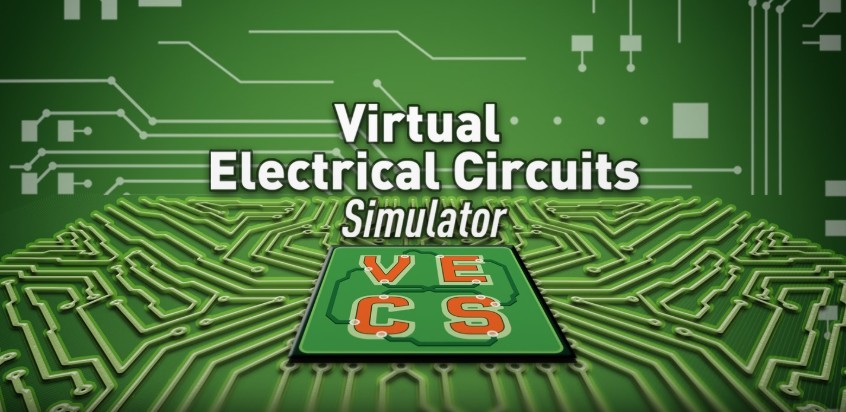Virtual Electric Circuits VECs
Virtual Electrical Circuits Simulator (VECS) offers an immersive, hands-on way for students to explore electronics like never before. Featuring over a dozen built-in lessons, VECS guides learners through the fundamentals of electricity and mechatronics by allowing them to build and analyze their own circuits in a dynamic virtual environment.
The simulator accurately replicates real-world components such as batteries, lightbulbs, resistors, capacitors, switches, motors, and more—even including a multimeter for measuring circuit behavior in real time. With its open-ended design, VECS empowers students to construct and test any circuit they can imagine—safely and without the need for costly, single-use materials typically required in traditional labs. Students can even push their circuits to failure, gaining insight from virtual “explosions” before working with physical components.
VECS is powered by Ngspice, an open-source SPICE (Simulation Program with Integrated Circuit Emphasis) engine. This technology numerically solves complex equations governing both passive and active electronic components, simulating real-world behavior such as time-varying currents, voltages, noise, and small signal performance.
Thanks to this high level of accuracy, VECS remains a powerful educational platform long after students complete the included lessons. Learners can continue designing and testing their own circuits, accurately measuring voltage, current, and resistance every step of the way.
VECS VR
VECS reviews
The app has a perfect 5.0 rating based on 3 verified reviews, with all users giving it 5 stars. One detailed review by user Dojomi praises the concept and intuitive interface for circuit building and testing. However, they note that SPDT switches are currently malfunctioning, which hinders tutorial progress. They also suggest improving the educational content by including deeper explanations of underlying concepts, rather than relying solely on open-ended questions. Additional features like more components, expanded tutorials, and pre-built test circuits are also recommended. Overall, users see strong potential for VECS as an educational tool with further development.

